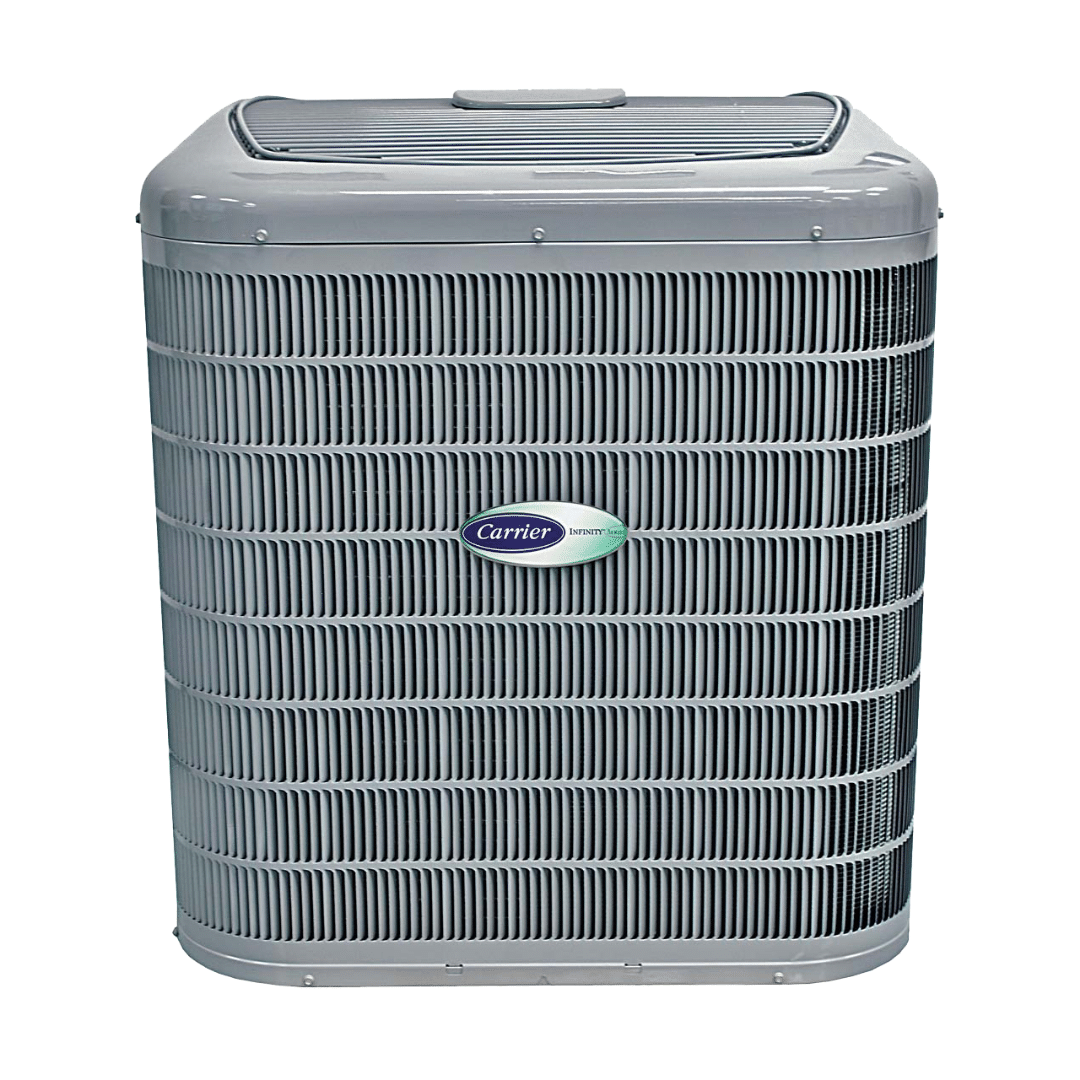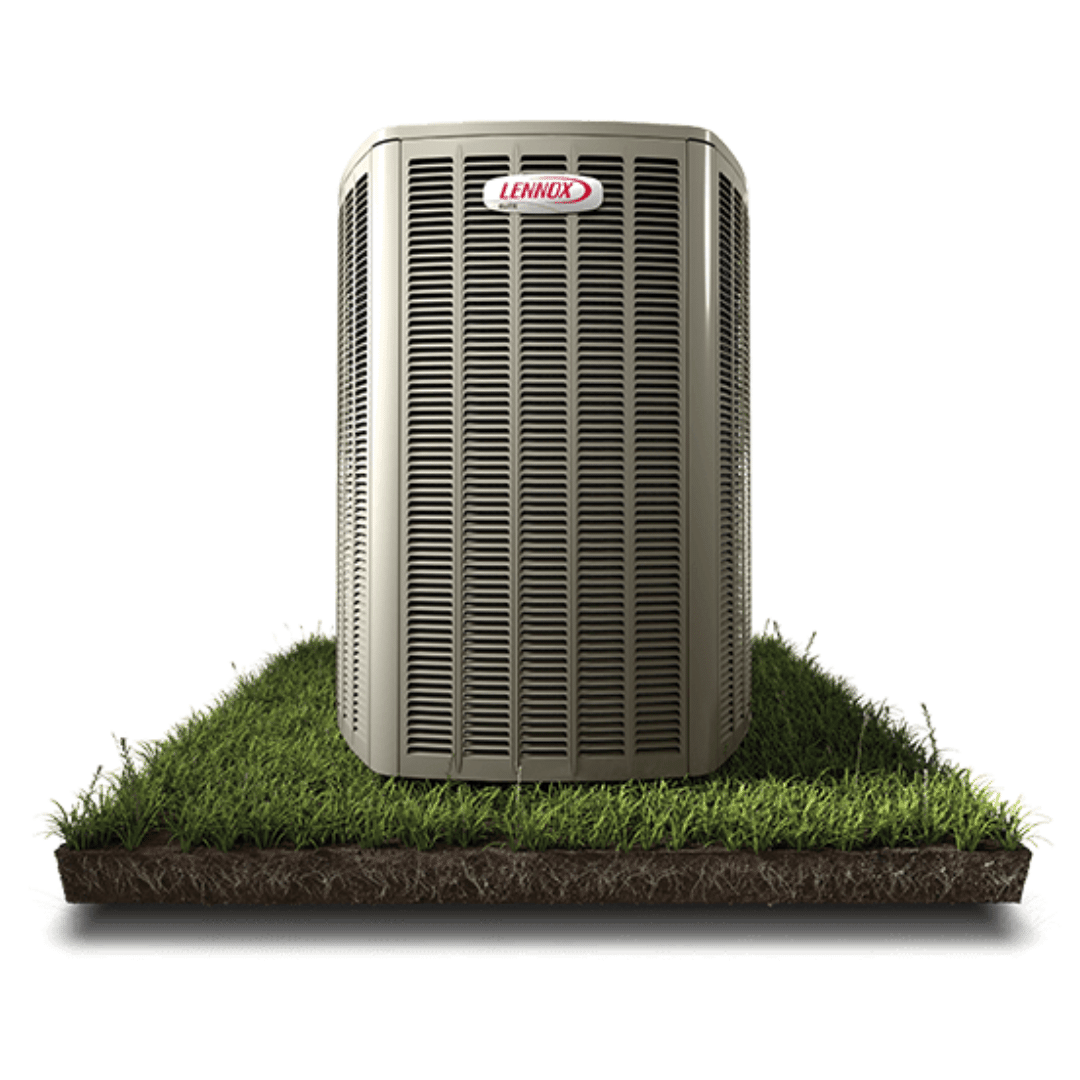If you’re in the market for a new HVAC system, you’ve come to the right place. Two of the biggest AC brands in the US are Lennox and Carrier, so we’ve put together this comparison to help you decide which is best for your property.
To help you make your decision, we compare: energy efficiency, features, compressors, warranties, and price. By the end of the piece, you will have a clear picture of the slight differences between the two brands and be in a much better place to make your final decision on which to go for.
Overview of Lennox & Carrier HVAC Systems
Before we dive into our comparison of the two brands, we thought it would be helpful to explain precisely what you can expect from both of them. After all, Lennox and Carrier HVAC units are regarded as the best in the business!

Carrier Infinity 17

Lennox XC20
While the models of each brand vary slightly, you can expect:
Ultimately, Lennox and Carrier manufacture a range of HVAC systems that are energy-efficient and environmentally friendly. But how are they different? Let’s find out.
Comparing Lennox & Carrier HVAC Systems
Energy Efficiency
An HVAC’s Seasonal Energy Efficiency Rating (SEER) is how to determine how efficient your chosen system is. Helpfully, both Lennox and Carrier publish the SEER ratings of their units on their websites, so it’s easy to find what you’re looking for. (Related: Air Conditioner Efficiency: How Is SEER Rating Calculated?)
Below is an overview of some of the most popular units within each range with their SEER ratings listed:
Tier | Make & Model | SEER |
|---|---|---|
Basic performance | Lennox XC14 Carrier 24ABC6 | 16 SEER 16 SEER |
Better performance | Lennox XC20 Carrier Infinity 17 | 20 SEER 17 SEER |
Best performance | Lennox XC25 Carrier Infinity 21 | 26 SEER 21 SEER |
As the table illustrates, Lennox units outperform those of Carrier in the better and best tiers. The Lennox XC25, in particular, is one of the most energy-efficient HVAC units out there and is the ideal choice if you’re looking for a system that will save you money in the long run.
The winner: Lennox
Features
Although Lennox and Carrier HVACs are both rich in features, there are some slight differences that are worth considering, depending on what you’re looking for in an AC unit. Let’s look at some of the features now:
We’re impressed by the range of smart features within Carrier and Lennox HVAC systems and it’s hard to split the two brands!
The winner: Tie
Compressors
The compressor is the beating heart of any air conditioning unit. Its job is to circulate refrigerant within the system, connecting the indoor and outdoor coils and enabling the system to cool your property.
The most advanced compressors are known as variable stage compressors, which provide you with much greater control over the way your HVAC system operates. Let’s take a look at the differences between the compressors found in Lennox and Carrier units:
Compressor Type | Carrier | Lennox |
|---|---|---|
Single-stage | Copeland | Copeland |
Two-stage | 1 compressor with 2 stages | 1 compressor with 2 stages |
Variable stage | Range 25%-100% (5-speed) | Range 35%-100% (65-speed) |
Lennox and Carrier use Copeland scroll compressors in their basic tiered AC units, which is regarded as a top-performing brand that has a low failure rate. Variable stage compressors enable you to exert much more control over your HVAC unit by changing the speed in small increments. Ultimately, this allows you to better manage the cooling of your home.
Carrier’s Infinity 19VS is their quietest model and has five speeds between 25% and 100%. While this isn’t bad, the speed goes up in 18.75% increments. Conversely, the Lennox XC25 ranges from 35%-100% and has 65 speeds. As such, it enables changes in just 1% increments. The key to Lennox’s high performance where variable speed is concerned is a result of their use of LG and converter technology.
When it comes to variable cooling precision, Lennox is the clear winner. That being said, Carrier units are slightly quieter, which is worth taking into account before making your decision.
The winner: Lennox
Warranties
As you would hope when you’re investing in a brand-new HVAC unit, both Lennox and Carrier provide their customers with good warranties.
Carrier offers ten-year parts and compressor warranty on all their models, making it nice and easy to understand. Lennox does things slightly differently, as illustrated in the table below:
Model | Compressor | Parts |
|---|---|---|
Signature | 10 years | 10 years |
Elite | 10 years | 5 years |
Merit | 5 years | 5 years |
If you’re going for a high-end Lennox model then you will receive the same level of warranty as Carrier offers on all their models.
If you want to extend your warranty, both companies allow you to do so. While the terms and conditions of extended warranties vary significantly, you can expect to pay anywhere between $300 and $2,000 for a policy. Overall, Carrier’s ten-year compressor and parts warranty on all models is the clear winner!
The winner: Carrier
Price
Last but not least, it’s time to look at the different price points between Carrier and Lennox HVAC units. According to Home Advisor, it costs the average American homeowner $7,000 to install a new HVAC system at their property. So, how do Lennox and Carrier compare?
Brand & model | Average cost |
|---|---|
Lennox Merit AC | $3,100 – $7,340 |
Carrier Comfort AC | $4,892 – $7,224 |
Source: HVAC 2021
As you can see, both Lennox and Carrier units are available in and around the price point that is considered to be average.
However, if you elect for the best tier product (Signature) with Lennox, you will understandably pay significantly more. You will also need to take into account things like installation, labor costs, and the removal of your current AC system, if required.
The winner: Tie
For best prices: I recommend using HomerAdvisor to get quotes. Why? Well as a consumer you'll typically find the best prices when the service providers are competing to earn your business -- that's what HomeAdvisor does.
The Verdict: Which is Better - Lennox or Carrier?
From our comparison, it’s evident that both Lennox and Carrier manufacture energy-efficient and environmentally friendly AC units.
If we were pushed to choose one over the other, we would probably go for Lennox, as they boast a higher SEER rating and their variable speed compressor is capable of increments of just 1%, compared to Carrier’s 18.75%. But ultimately, you can buy from both Carrier and Lennox in the confidence that you will be receiving one of the best AC units on the market.

Our unit is 10 years old, we would like to be pro active, and replace before it becomes an emergency. We are told of new regulations and specifications for these appliances that will go into effect next year. My question: should we wait until 2023?, or purchase a 2022 model?
Good question. Replacing it now is fine, but make sure the new system uses refrigerant R-32 or R-454B… those are what is going into effect.